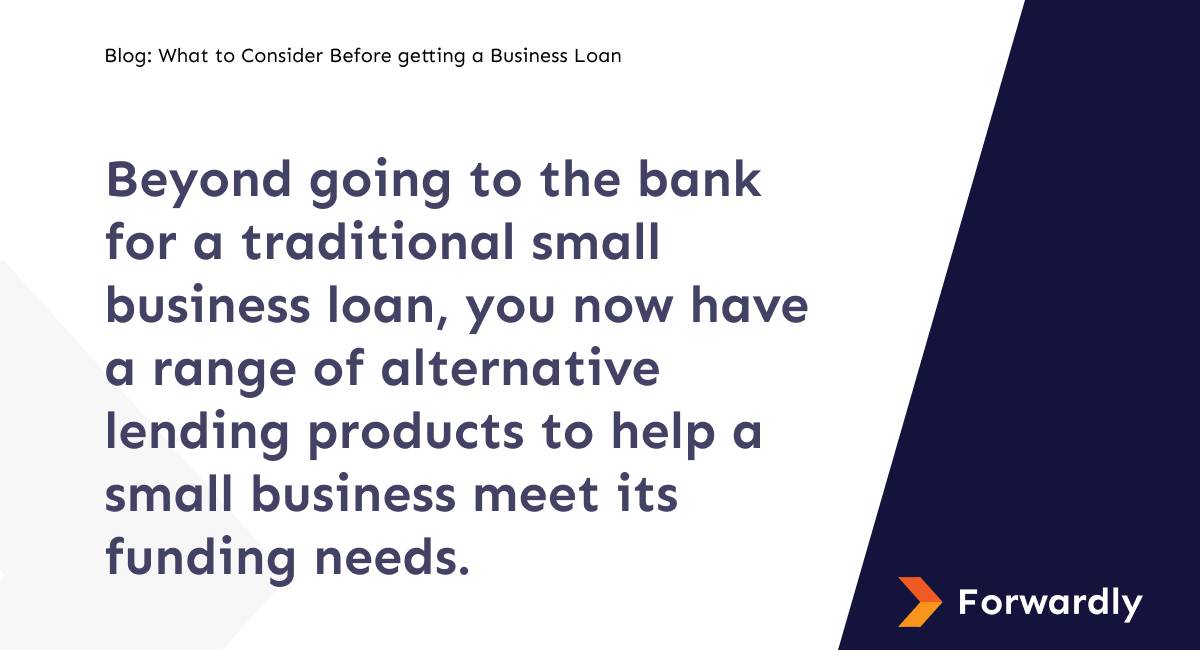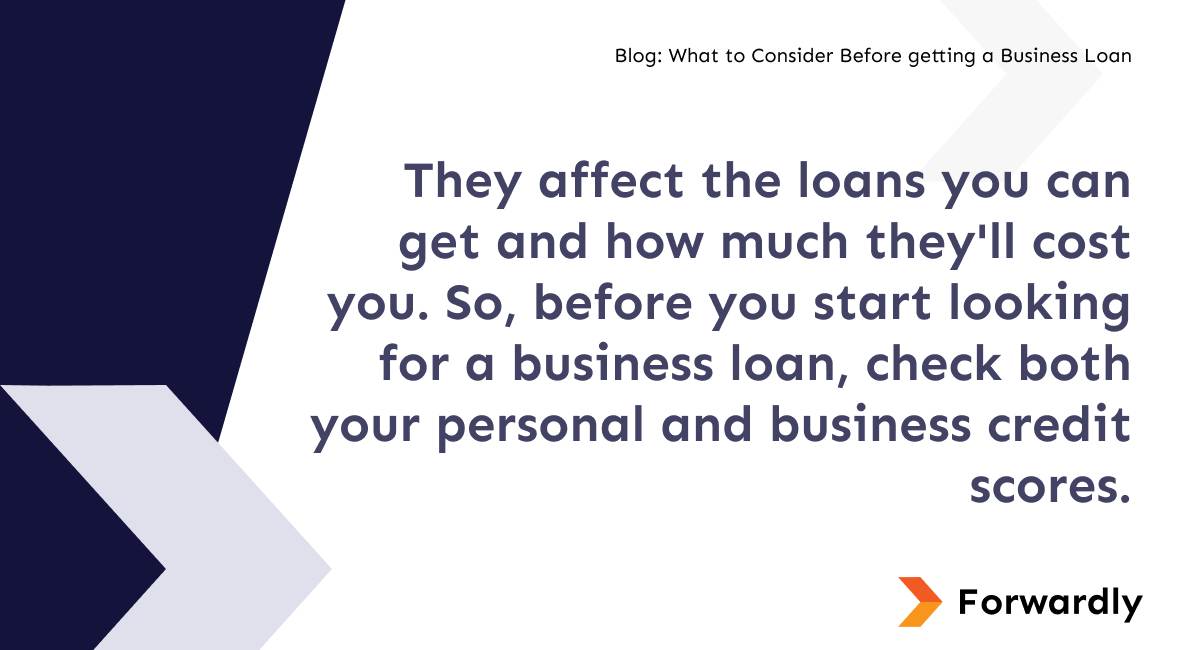The options for small business financing have increased considerably. Beyond going to the bank for a traditional small business loan, you now have a range of alternative lending products to help a small business meet its funding needs.
While this has made it easier for small businesses to get the capital they need, it has made the process of finding the right loan a little more confusing. There is no one-size-fits-all lending solution that is the best option for every business under every circumstance. To make sure you’re getting a business loan that is the best option for your needs, you need to think about a few things ahead of time.

By asking yourself critical questions before you start looking, you can get a better idea of which lending options will work best for your business as you start your search.
Why does my business need a loan?
When you’re thinking about getting a business loan, it’s not just about the obvious reasons. Knowing why you need the loan can help you make smarter choices when it comes to signing on the dotted line. One big question it can help with is whether you should get a short-term or long-term loan.
As an example, if you need to replace an expensive piece of equipment, it might take longer to realize the return on investment, so you are probably better off going with a lending option with a longer term.
On the other hand, it could be a business that wants to buy extra inventory it expects to sell quickly. If this is the case, it makes more sense to look for a short-term loan. Even if the shorter term comes with higher payments and interest, the total cost will usually be lower because the capital is paid back in less time.
How much money does my business need?
When you’re getting a business loan, knowing why you need it helps you figure out how much to borrow. According to one prominent lending marketplace, many small business owners enter the process with the intention of borrowing as much as they can. While it might seem logical to get as much funding as you can, there are downsides that come with borrowing too much.
A loan is not free money. You need to have a plan for how you are going to turn the capital into value for your business and to pay the money back. Furthermore, every dollar you borrow is going to increase the cost of the loan. If it is not a part of the plan, you are adding to the expense without adding any value.
Knowing the amount you need to borrow can also help you find the right lending product. And when there are so many different type of small business loans available, it can be pretty difficult for you to choose where to go or what is going to be the best fit. So, it’s best to budget out how much you realistically need to borrow. Banks typically want to deal with high-value loans. If your capital needs are relatively small (under $250,000), most banks won’t find it worth the administrative costs that go into the process. Microloans and other alternative lending solutions could be a good resource for these borrowers.
How long can I wait?
It is important to know how quickly you need the money. Some funding needs have no hard timeline, but there are situations where a business might need money quickly. As an example, maybe you signed a contract with a customer and need capital to buy supplies.
In a situation like this, a business might not be able to wait for the long approval process that is typical of getting a loan from a bank. Fortunately, some lenders specialize in loans that include fast approval and a quick release of the funds. It might cost more than borrowing from a bank, but it could be worth it if your business needs the money in a hurry.
Monitoring and forecasting your business’s cash flow is also essential for identifying and preventing financial pain points before they arrive. You can even do that in automated ways with Forwardly’s rolling cash flow forecasting tool. When it comes to getting a business loan, speed matters sometimes.
How does your business credit profile look?
When it comes to getting a business loan, your personal credit history and your business’s credit profile matter a lot. They affect the loans you can get and how much they’ll cost you. So, before you start looking for a business loan, check both your personal and business credit scores.

Lenders are likely to use credit information from your business and your personal life when determining the creditworthiness of your business. If you haven’t started already, you should be monitoring both credit scores and working to improve them.
With these questions answered you will be better equipped to assess different lending products. Take the time to look at the range of options that are available and use this information to find a loan that meets your needs and makes sense for your business.
Think Forwardly for healthy cash flow
As you explore your financial options, it’s worth considering modern payment solutions like Forwardly. Forwardly offers affordable instant payments and includes a rolling 12-month cash flow forecasting tool for free. These tools can help your business not only manage its cash flow more effectively but also potentially reduce the need for loans altogether. With Forwardly, you can gain better control over your finances, making informed decisions that optimize your business’s financial health and sustainability.
While loans are valuable in certain situations, Forwardly helps you be ready and improve your financial situation, making your business more financially secure. Start thinking Forwardly today and sign up today.
 Back to Blog
Back to Blog


